Who is failing the climate? Are underreporting journalists, politicians in denial or fatalists, who insist that only the most aggressive few can survive, at fault? Are horrified white boys or an industrial complex that capitalize on this misery more to blame? The list of potential culprits may be long, but the ultimate raft of solutions needs to be even longer. Hysterics do not help, long-time activists remind. A complex collapse cannot possibly be tackled without doing away with the stereotype that the environment is only important for the white, middle-class. The colonized and exploited must have a voice and introduce positions on the problem. An enforced cooling down of the coronavirus crisis may as well offer a window of opportunity for a transition from an economy of exploitation and disposal towards fulfilling the needs of the many.
Are ecological crises inevitable? Eurozine looks at the cultural and political factors behind delayed responses to the climate emergency, and potential ways out of it.
This focal point is published with the support of Studio Europa Maastricht.

In collaboration with
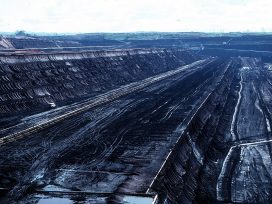
Despite real and immediate environmental catastrophes, Australia’s climate change policies are the most backward in the world. To be pro-environment is to be seen as un-Australian; coal mining in particular is a source of national pride.

A new Bauhaus?
The debate for a more inclusive Europe
The European Green Deal proposes that art-science collaborations pull us out of environmental crises. But doesn’t invoking an early 20th century movement just reflect modernist shortcomings – the very inequalities a green transition is supposed to redress?
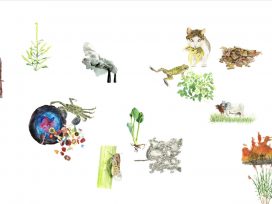
Zones of friction
An interview with Anna Lowenhaupt Tsing
Extractivism and its impacts seem to be globalization’s end game. Industrial capitalism plunders natural resources, wreaking havoc on biomes and the lives of Indigenous peoples – then moves on. Anna Lowenhaupt Tsing speaks about the ‘friction’ between dynamic groups that can ultimately bring regeneration.
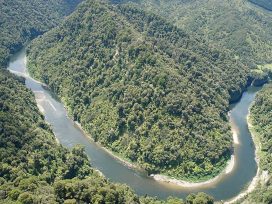
It may seem utopian, but granting rights to inanimate beings could break the institutional deadlocks of environmental policy making. Not only that, ‘a parliament of things’ could eliminate the inequalities inherent in our anthropocentric approach to politics.

Roots in nature
The pathogen and the politics of biodiversity
People are starting to notice nature’s invoices: forest fires burning koalas, plastic in the oceans, but the loss of biodiversity freefall has not yet fully broken through onto the political agenda. The pandemic now highlights the connection between human health and the mismanagement of nature and wildlife.
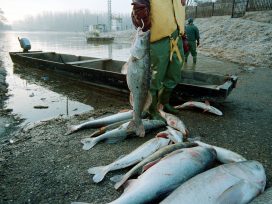
Will polluters ever pay?
Industrial disasters from Baia Mare to Beirut
The explosion in Beirut’s port was so loud that it was heard 150 miles away in Cyprus; a neglected store of fertilizer was the unsuspected bomb. To avoid such mismanagement of hazardous chemicals, authorities need to ensure that the polluter pays, says Gergely Simon.
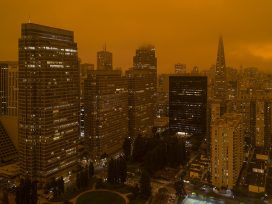
Global heating, environmental collapse and increasing global scarcity: no wonder the politics of perpetual advancement are failing to convince. Progressives must brace themselves for the return of some of their most detested ideas. But dismissing the nostalgists as reactionary can no longer be their response.
Natural disasters dissolve the fundamental distinction between the human and the natural worlds. At this moment, we discover that we are surrounded by silence. On art and philosophy amidst ecological crisis.
The materiality of the cloud
On the hard conditions of soft digitization
Although we often think about the Internet as immaterial, storing the seemingly abstract ones and zeros requires actual, mechanical work. Those who provide the material means are continuously underpaid, thus ‘growth’ and ‘development’ at the centre result in energy depletion in the periphery.
What can the history of the soil tell us about modernity and its ills? An experiment in urban gardening sets Kate Brown thinking about the consequences of the western world’s perennial misuse of the land – and how to return life to today’s extinct terrains.
Between tolerance and prohibition
Roma scrap metal collectors toiling outside Paris
Scrap metal collectors, working on the periphery of society, sustain the ground level operation of a lucrative global market. Facing exploitation and illegitimacy, their conditions have worsened since COVID-19.
The weight of life
On the economy of human lives
In a rush to minimize the recession following COVID-19, some hold their economies dearer than the saving of lives. But prosperity isn’t the indefinite depletion of bodies and resources. It is through the satisfaction of basic needs that we will restore the dignity of all.
Does the comfort of the quarantined consumer outweigh the life and safety of the slaughterhouse workers who cannot afford to stay home? The recent coronavirus outbreaks in meat processing plants pose a dreadful question.
Why we need a decolonial ecology
An interview with Malcom Ferdinand
Environmental destruction and social oppression have always gone hand in hand. Colonialism and slavery are deeply connected to the ongoing ecological crisis, so to address it, Europe’s whitewashed past must be recast and the demands of the colonized taken seriously.
Our slowed-down, cooled-down, scaled-down lives during the pandemic are evidence that quality of life does not depend on high productivity and frantic consumption. Suddenly, it has become respectable – and realistic – to talk about reforming society and the economy.








